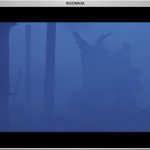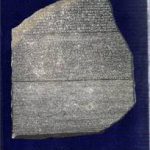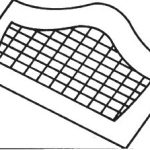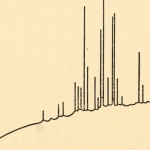2007
For Jay Murphy, Clayton Eshleman in his JUNIPER FUSE makes a resounding case for lived experience, for the tortuous growth, however partial or fragmented, as rooted in self-suffering as modes of vision and dream.
For Angela Szczepaniak, Canadian poet Stephen Cain visually distorts language by blurring the borders of poetic language and national identity, which are often assumed to be much more clear and distinct than they actually are.
The collection of innovative writing Biting the Error: Writers Explore Narrative is, for Janet Neigh, also a refreshing example of innovation of the anthology genre itself.
Three recent poetry publications by Nate Dorward's press The Gig are reviewed by Greg Betts; these are not poems so much as environments outside of, perhaps astride, the contingencies of systems.
Mike Barrett evaluates Steve Tomasula's The Book of Portraiture in terms of its place between tradition and artistic innovation in the 21st century.
Katherine Weiss revisits Hugh Kenner's playful work of scholarship Flaubert, Joyce, and Beckett: The Stoic Comedians, a book which offers a glance into the more experimental scholarship of 1960s France and provides an analysis that to this day seems original.
In a reading of Christopher Nolan's films (with and against texts by Poe, Wittgenstein, Searle, and Derrida), Walter Benn Michaels examines the autonomy of the work of art.
Stephen Hawkins engages with the "web of counterintuitive, paradoxical, contentious and yet important claims" that he identifies in Gilles Deleuze's Proust and Signs.
Stephen Hawkins reviews Ronald Schleifer's Analogical Thinking, arguing that despite Schleifer's attempts at interdisciplinarity, his book falls short of a truly collaborative approach.
Geneviève Brassard defends Gerald Graff's original approaches in Clueless in Academe against his critics - for the problem with Graff's book does not lie between the covers but rather between the ears of those who fault him excessively for sins of omission and commission.
Darren Tofts and Lisa Gye introduce the collection of essays, appearing here in the electropoetics thread, from the Alt-x e-book The Illogic of Sense.
Rowan Wilken sets himself the challenge of theorizing the unrepresentable in relation to the architectural model of the diagram.
Marcel O'Gorman offers a candid account of what it means to introduce the computer apparatus into teaching in the humanities.
Michael Jarrett practices an Ulmer-inspired heuretics to write about rap.
Jon McKenzie, a former student of Gregory Ulmer's, traces the relations of influence and mentorship.
Linda Marie Walker writes an involved meditation on the concept of the interface and its relation to place.
Niall Lucy enacts a writing that weaves critical and theoretical speculation, rock journalism, hagiography and autobiography.
Craig Saper ingeniously interprets Gregory Ulmer as an object of study, as both a vehicle and driver of signification.
Jerome McGann addresses the so-called "Crisis in the Humanities" in the context of two of its most apparent symptoms: the digital transformation of our museums and archives, and the explicitly parallel "Crisis in Tenure and Publishing" that has more recently come to attention.
2006
Entering the 'cyberdebates' initiated by Nick Montfort, John Cayley, and Rita Raley, new media scholar Mark Marino proposes that we should analyze and explicate code as a text like any other, 'a sign system with its own rhetoric' and cultural embeddedness.




